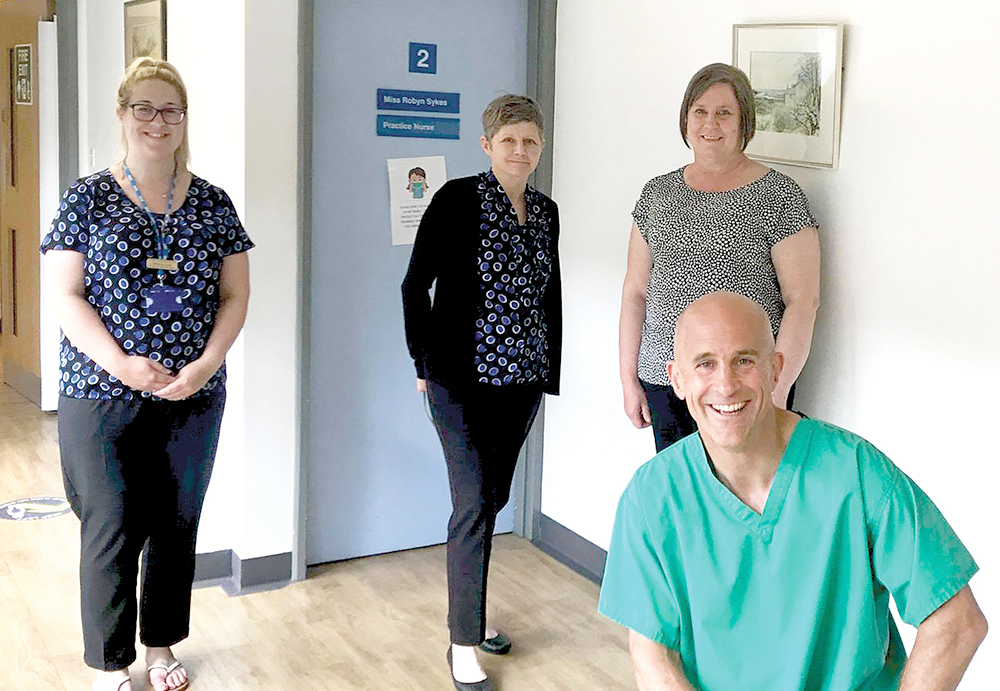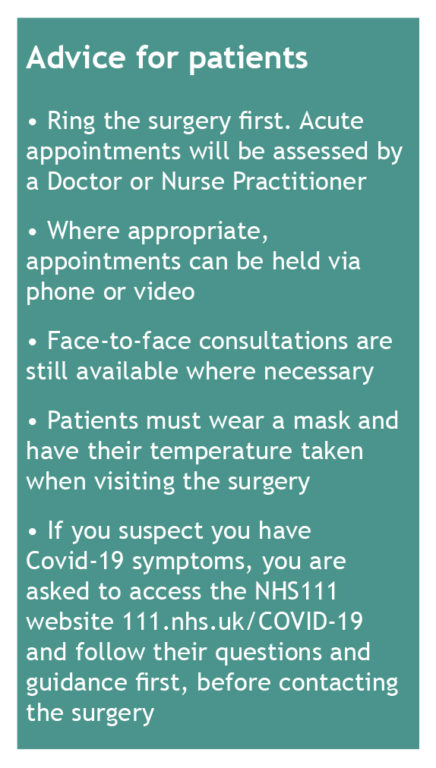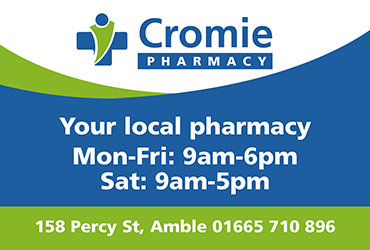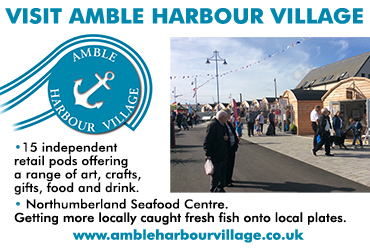Amble GPs: We must not be complacent
The past few months have been taxing for all of us, not least our local GP practice. Staff at Coquet Medical Group have had to adapt some of their fundamental working practices and prepare for the unknown, all while running a busy Health Centre.

l-r: Rebecca Curtis, Assistant Practice Manager; Lisa Scott, Practice Manager; Dawn Wade, Receptionist; Dr Ben Burville, Partner.
Assistant Practice Manager Rebecca Curtis told The Ambler that some of the changes, such as keeping the surgery doors closed for the foreseeable future, and the use of video consultations would remain. This is for the safety of both staff and patients.
“We are also encouraging patients we do see, to wear a face mask, and inform them they will have their temperature checked at Reception. We are also asking patients not to come early as we don’t want the reception area full of people waiting.”
Patients are asked to ring the surgery if they have an issue, and any acute appointments will be triaged by phone first. Doctors or the Nurse Practitioner will then decide whether the patient needs to be seen in person or if they can be treated via phonecall or video.
Rebecca explained that the video consultations have been very successful. “They are working really well, and in fact the NHS were looking to introduce this anyway. It’s not taking away from our face-to-face appointments, but it means we have the facility to text, talk or provide video consultations where necessary.”

New NHS tool is an excellent resource
Over the summer, staff at Coquet Medical Group are expecting a slowdown in the number of Covid-19 cases. During this time, they will be looking to see more routine appointments.
However, come the autumn, they are expecting a rise in the number of patients contacting the surgery. This will be due to a combination of seasonal flu, chest infections, viral winter respiratory infections and Covid-19. It will be impossible to differentiate between any of these conditions until a test has taken place.
“There’s been masses of work done for the NHS 111 screening tool,” explained Rebecca. “So we are encouraging people, if they have the symptoms, to go to the website: 111.nhs.uk/COVID-19. Go through the questions and follow the guidance.
“It’s an excellent resource, and it means patients can take some control at the start. By completing this pre-screening before contacting us, it will also help us manage calls coming in, and means we can prioritise our planning during the flu season.”
Planning has been key to the medical group’s ability to cope so far, but Rebecca admits the last few months have been a challenge for the team. “It’s been tough, but we have had to take it in our stride. We’ve had guidance from the government and NHE England regarding shielding, and we’ve had to do what we could to manage staff and patient anxiety.”
And despite the apparent lull in the number of summer Covid-19 cases, Rebecca stressed the point that we are not over this pandemic yet. “We need to make people aware, they still need to be really cautious, not complacent. Northumberland has been relatively lucky compared to other areas in the UK, because we don’t have dense population numbers. But the virus is still here. And it’s going to affect the way we all work for a long time.”
Anna Williams













How are flu injections going to be managed?